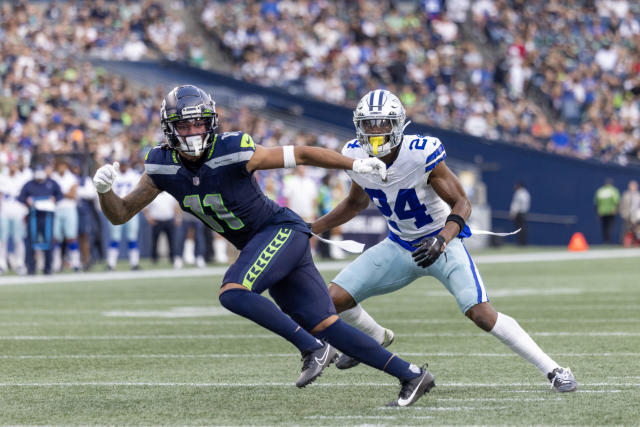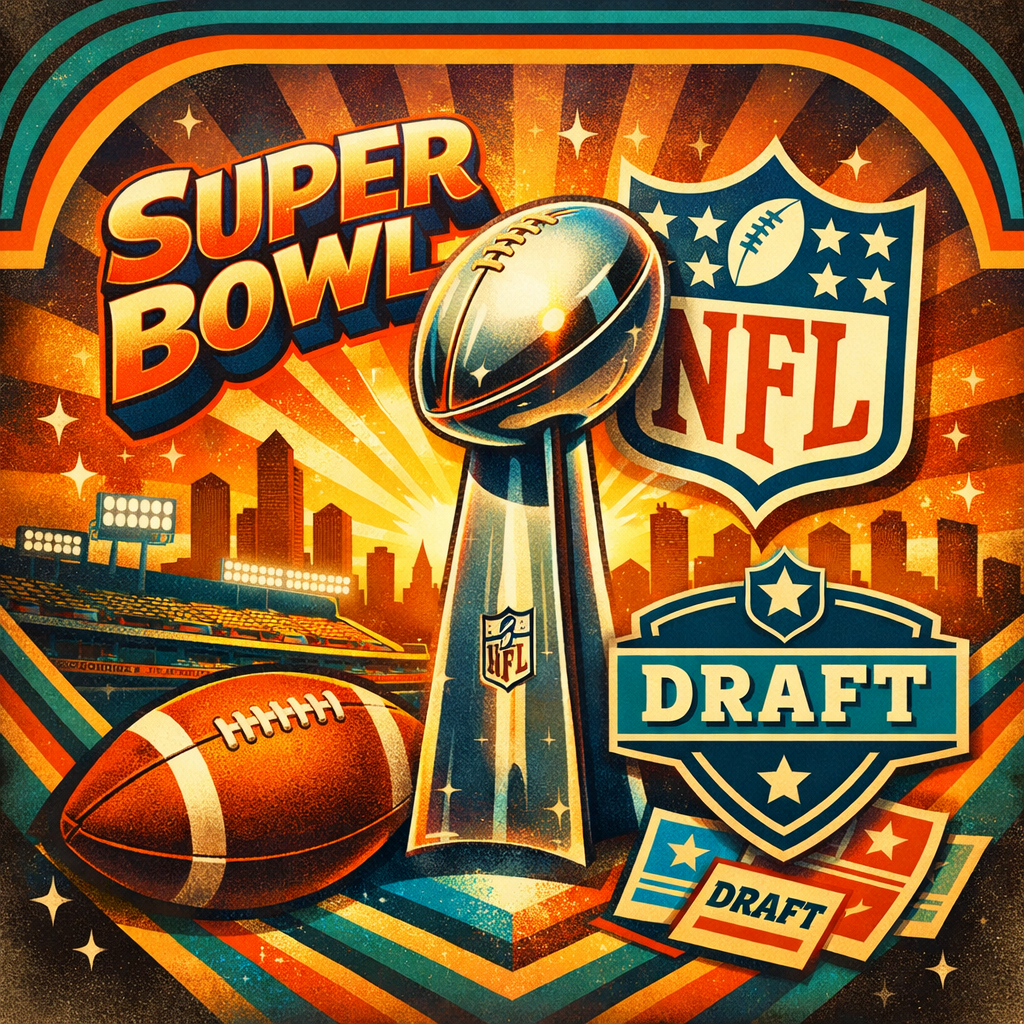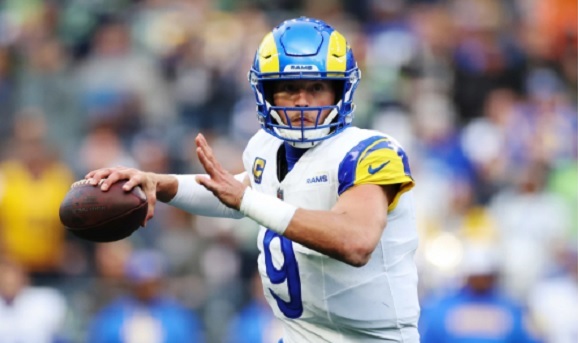Solid Starter
 Chris Godwin, WR, Penn State – Round 3
Chris Godwin, WR, Penn State – Round 3 
It was apparent during Jameis Winston’s second season in the NFL that the young franchise quarterback was lacking receiving weapons. Mike Evans is a true No. 1 receiver, but beyond him, the Bucs were lacking players who could make plays for their quarterback. Hence, Tampa Bay targeted and signed DeSean Jackson in free agency, but the organization wasn’t done, using the 2017 NFL Draft to take tight end O.J. Howard and wide receiver Chris Godwin, giving Winston two more young targets to grow with.
Jackson was a nice signing, but at this point of his career, he is a bit of a one-trick pony. Washington let him go for a reason as he is turning 31 next season with a decline in speed inevitable. Tampa Bay made a really wise pick with Godwin, who is a vertical-threat receiver who can learn from Jackson in the short term before taking over a bigger role in the years to come. For three-wide receiver sets, the Bucs now have three dangerous players with Evans and Godwin on the outside with Jackson lining up in the slot. The team also could move Godwin or Evans inside to the slot if the coaches want to jockey around to set up mismatches. Godwin was a downfield play-maker for Penn State last year while hauling in 59 passes for 982 yards and 11 touchdowns. He then showed real speed at the combine with a time of 4.42 seconds in the 40-yard dash, and at 6-foot-1, 209 pounds, he has quality size to him.
I think Godwin has boom-pick potential as well, but I couldn’t pass on choosing Howard for that projection. Godwin could start out his rookie year as the third and fourth receiver, splitting time with Adam Humphries behind the big-name veterans, but in a year or two, I think Godwin will emerge to be a quality No. 2 to Evans and the deep-threat receiver for the prime years of Winston’s career. Godwin was a really solid choice in the third round of the 2017 NFL Draft.
2016: Robert Aguayo, K
2015: Ali Marpet, C
2014: Mike Evans, WR
2013: Akeem Spence, DT
Most Likely To Bust
 Justin Evans, S, Texas A&M – Round 2
Justin Evans, S, Texas A&M – Round 2 
I thought the Buccaneers had a good draft, but the one pick who I thought was questionable was Evans in the second round. Sources from other teams said they had Evans graded much lower than Round 2, and there were higher-graded safeties available who Tampa Bay passed on to take Evans. At Texas A&M, Evans was a solid player, but he has some coverage limitations, and in the passing-driven NFL, those could be exploited.
An AFC playoff team that is very good at evaluating defensive backs had Evans as a third-/fourth-rounder on their draft board. The 6-foot, 199-pounder is a strong safety type who is a good run defender and a strong eighth man in the box. He is more of a strong safety for the NFL as teammate Armani Watts was the free safety in the Aggies’ defense.
I think Evans could have some problems in pass coverage with NFL receivers and tight ends. He doesn’t project as a free safety or deep center fielder, or a safety who can play some man coverage on slot receivers. Good tight ends I think will give Evans some problems as well. I think he could be a solid pro safety, but of the Bucs’ early round picks, I think Evans has the highest bust potential.
2016: Noah Spence, DE
2015: Donovan Smith, OT
2014: Charles Sims, RB
2013: William Gholston, DE
Potential Boom Pick
 O.J. Howard, TE, Alabama – Round 1
O.J. Howard, TE, Alabama – Round 1 
Entering draft night, Howard was considered one of the best tight ends to enter the NFL in years and a worthy candidate to be a top-10 pick. The 6-foot-5, 249-pounder is very fast with rare athleticism to be a special receiving threat in the NFL. As a senior, he improved as a blocker and route-runner to become a complete tight end prospect. Howard wasn’t expected to make it to Tampa Bay at the 19th pick, and sources say that Howard slid mainly because teams typically don’t take tight ends that high and there just weren’t many teams with a big need at tight end picking ahead of the Buccaneers. Additionally, the run on quarterbacks helped to push Howard down. That fall ended up giving the Bucs a great value pick with a long-term tight end for franchise quarterback Jameis Winston to work with.
Howard is a real mismatch weapon as a receiver. Naturally, he is just extremely athletic and a fast tight end to get downfield quickly. He often burned man coverage at Alabama and is very adept at finding the soft spot in zone coverage. Howard has a big frame to box out safeties and leaping ability with body control to make catches over defenders. Linebackers have little chance of covering Howard in man coverage; only elite NFL linebackers with great speed could cover Howard. He should be a tremendous middle-seam tight end who produces big plays for his offense.
Along with his route-running, Howard really improved as a blocker in his senior year. He was making some nice edge blocks to free his backs, and he hit some huge blocks against Clemson in the National Championship to spring runs for his back. Howard has quick feet and latches on long enough in pass protection to buy his quarterback time. In the ground game, he got better at sustaining his blocks and getting into the body of the defender. A big part of blocking for tight ends is just having the desire and giving an effort, Howard does that and has turned himself into a likely three-down starter for the NFL.
As a pro, Howard could be a devastating mismatch weapon and one of the top receiving tight ends in the NFL. I think he will become a Pro Bowler and be one of the best tight ends in the league.
2016: Vernon Hargreaves, S
2015: Jameis Winston, QB
2014: Austin Seferian-Jenkins, TE
2013: Johnthan Banks, CB
Future Depth Player
 Kendell Beckwith, LB, LSU – Round 3
Kendell Beckwith, LB, LSU – Round 3 
Many were surprised when Tampa Bay traded back into the third round for Beckwith. The Bucs were thought to not be in the market for linebacker help with starters Lavonte David and Kwon Alexander set for years to come, but Beckwith makes a ton of sense for Tampa Bay. The 6-foot-2, 243-pound Beckwith is a big, physical linebacker who can take on offensive linemen and help the Buccaneers defend against downhill rushing attacks. David and Alexander are very fast, but smaller linebackers; Beckwith gives the Bucs size, and they can move him into the middle if they are facing a physical rushing attack. Beckwith also can man the middle in short-yardage, goal-line, and the four-minute defense with his run-defense instincts.
Sources at other teams told me they had a second-round grade on Beckwith prior to his ACL injury and they liked his instincts, strength, physicality and toughness. In the passing-driven NFL, Beckwith will probably come off the field in nickel sets, so that means he will be on the sideline for about 70 percent of snaps. While he may not play as much as a starter does, Beckwith could be a nice depth and rotational defender for Tampa Bay once he’s healthy.
2016: Devante Bond, LB
2015: Kwon Alexander, OLB
2014: Robert Herron, WR, Wyoming
2013: Mike Glennon, QB
Walt’s 2017 NFL Draft Grades:
19. O.J. Howard, TE, Alabama: A+ Grade
I thought the Buccaneers would select Dalvin Cook, but I never would’ve imagined that O.J. Howard would still be on the board. With that in mind, this is a no-brainer. The Buccaneers are getting a prospect many thought would be chosen either fourth or sixth overall, making this a crazy value pick. Howard was the best player available, and he’ll fill a need for Tampa. Cameron Brate played well last year, but he’s limited athletically. Howard will provide Jameis Winston with a matchup nightmare weapon, and Winston will improve because of Howard’s presence. This is an easy A+.
50. Justin Evans, S, Texas A&M: B Grade
See what I mean about talented safeties being available. Both Justin Evans and Obi Melifonwu make a ton of sense for the Buccaneers, who desperately needed to fill a hole at safety. Both are also extremely athletic, which fits what Tampa looks for. Evans makes sense in this range, and this appears to be a solid pick.
84. Chris Godwin, WR, Penn State: A Grade
The Buccaneers are having a terrific draft thus far. They’ve added a second offensive weapon (O.J. Howard) to go along with Mike Evans and DeSean Jackson, and Chris Godwin certainly was needed. The Buccaneers had to acquire a third receiver, and Godwin provides very good value, as he could’ve been chosen in the second round. Godwin was one of the top testers at the combine, and he has the production to match it, so I don’t know how he lasted until the middle of the third round.
107. Kendell Beckwith, LB, LSU: C Grade
Had the Buccaneers just made the pick here, I would’ve given it a “B.” However, the Buccaneers traded up to take Kendell Beckwith. I doubt many teams were dying to select him around this range, given that he’s coming off a torn ACL and may not be able to play until 2018. I don’t know why a team would trade up for someone like that, but Beckwith could be a decent contributor for Tampa in 2018 and beyond.
162. Jeremy McNichols, RB, Boise State: A- Grade
Doug Martin really struggled last year, so the Buccaneers had to find a new running back. There was speculation that they’d choose Dalvin Cook, but Jeremy McNichols makes sense on Day 3. McNichols is a strong receiver and thrives in pass protection. His injury concerns are the only issue.
223. Steve Tu’ikolovatu, DT, USC: B Grade
The downside with Steve Tu’ikolovatu is that he turns 26 soon, and he’s also extremely unathletic. However, the latter part isn’t very important because his role, if he makes the pros, will be to stuff the run, which is the only thing he’s very good at doing. The seventh round is the time to select specific specialists like that, even if they’re going to need adult diapers in the near future.
2017 NFL Draft Team Grade: B+ . Follow Walter @walterfootball for updates.
Tampa Bay Bucs Season Preview
NFL Picks - Feb. 6
2026 NFL Mock Draft - Feb. 5
Fantasy Football Rankings - Jan. 29
NFL Power Rankings - Jan. 26




